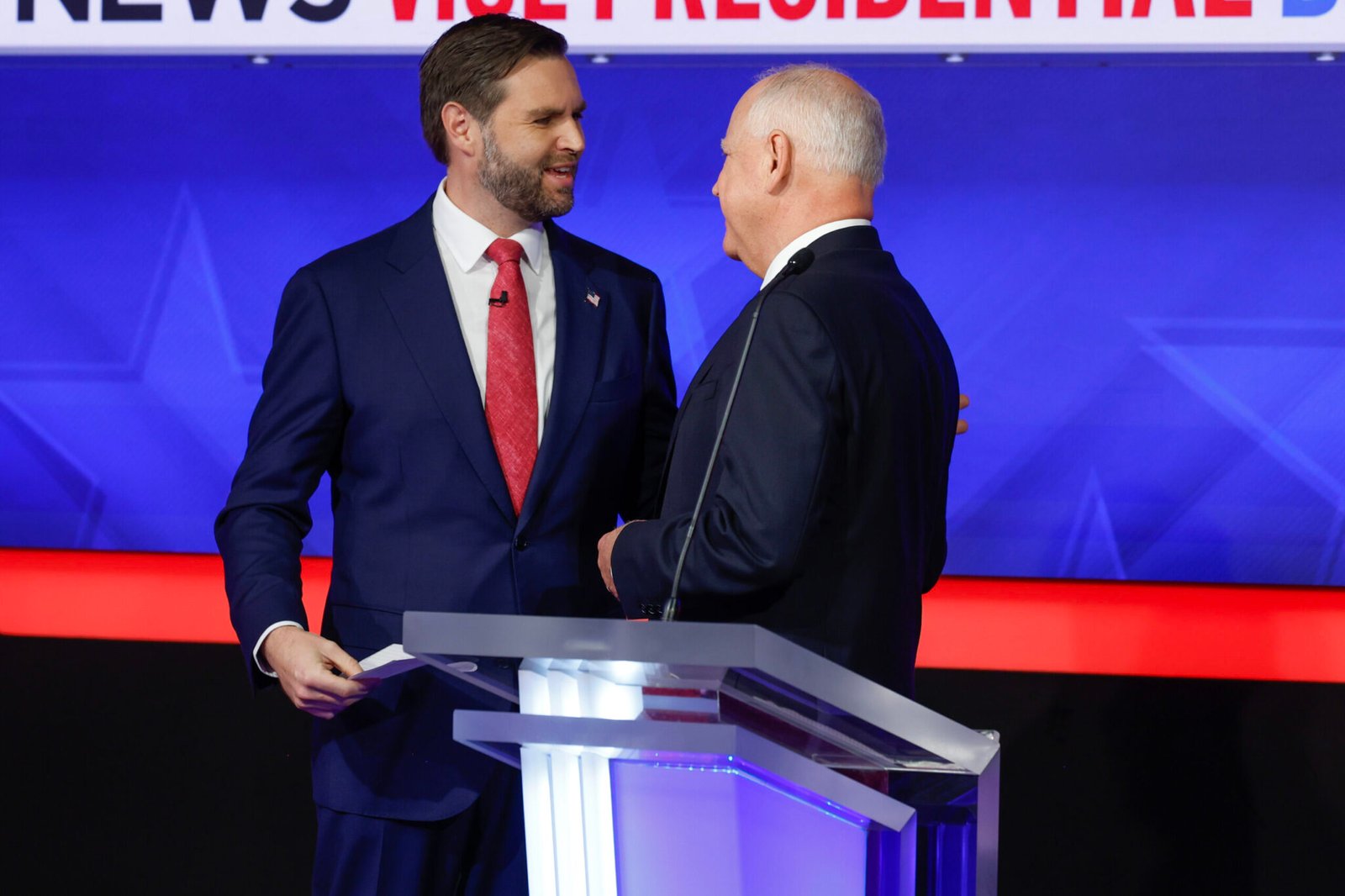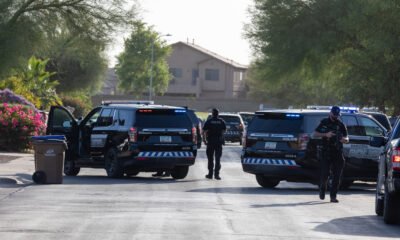DC Bureau
Tim Walz and J.D. Vance Clash in Civility at Unconventional Vice Presidential Debate

Democratic Minnesota Governor Tim Walz faced off against Republican Ohio U.S. Senator J.D. Vance Tuesday night in a vice presidential debate, representing the last planned in-person encounter for their respective campaigns.
This was the first meeting between Walz and Vance, who engaged in a rigorous, nearly two-hour dialogue moderated by CBS News’ Norah O’Donnell and Margaret Brennan at the network’s New York City studios.
The candidates shared their stories of modest beginnings and outlined plans to tackle rising living costs, address contentious issues such as reproductive rights, immigration, and gun violence, and manage an escalating conflict in the Middle East.
The debate came amid a politically charged atmosphere, as the moderators posed critical questions about the potential for a peaceful transfer of power, considering the aftermath of the 2020 election. Vance refrained from directly addressing whether he would have certified the 2020 electoral results.
Walz, a second-term governor previously in the U.S. House, has a background as a public school teacher and a 24-year enlistment in the Minnesota Army National Guard. On the other hand, Vance, a former U.S. Marine and Yale law graduate, was elected to the Senate in late 2022.
Despite some moments of friction, the debate remained largely amicable, contrasting with the polarizing environment of the presidential race. Following the discussion, both candidates shared light moments with each other’s families on stage.
The growing tensions in the Middle East were a central focus. Walz accused Trump of erratic foreign policy decisions that worsened international relations since the U.S. withdrawal from the Iran nuclear deal. He called for “steady leadership” to combat the accelerating conflict.
In response, Vance argued that Trump’s policies had established crucial deterrents and dissuaded global aggression. He maintained that threats of violence had kept international peace during Trump’s presidency.
The Pentagon reported heightened regional tensions shortly before the debate, particularly following Iran’s missile attacks on Israel. Both candidates acknowledged the stakes involved and the necessity for effective leadership in navigating these challenges.
Confronted with their contrasting views on the 2020 election aftermath, Walz condemned Trump’s actions and rhetoric. He expressed concern over Vance’s hesitance to criticize Trump’s refusal to acknowledge his electoral defeat.
In economic discussions, both candidates sidestepped questions about managing the national debt while presenting their fiscal policies. Walz endorsed a “Child Tax Credit” expansion, while Vance defended Trump’s tariff strategy, asserting it would protect American jobs and industry.
The dialogue also addressed pressing issues like housing and childcare costs. Walz advocated for building three million new homes and emphasized the need for accessibility, while Vance suggested leveraging federal land for housing development.
On immigration, Vance linked the housing crisis to the influx of illegal immigrants, maintaining that it exacerbated the issue in Ohio and beyond. He reiterated the connection to Trump’s campaign focus on border control and its impact on housing costs.
The candidates explored differing beliefs on reproductive rights. Vance mirrored Trump’s stance, suggesting state-level decision-making, while Walz championed women’s autonomy in healthcare decisions, citing adverse outcomes from restrictive laws.
Gun violence solutions were another critical topic. While both candidates acknowledged the urgency of addressing casualties from gun violence, Vance emphasized a need for enhanced school security, whereas Walz advocated for stronger gun control measures.
The candidates expressed concern regarding the devastation caused by Hurricane Helene but diverged on climate change policy. Vance criticized existing Democratic climate measures, advocating for increased American manufacturing as a solution, while Walz highlighted the dual goals of job creation and climate action.
As the debate concluded, it highlighted the contrasting visions that Walz and Vance present to voters in a critical election year.


















